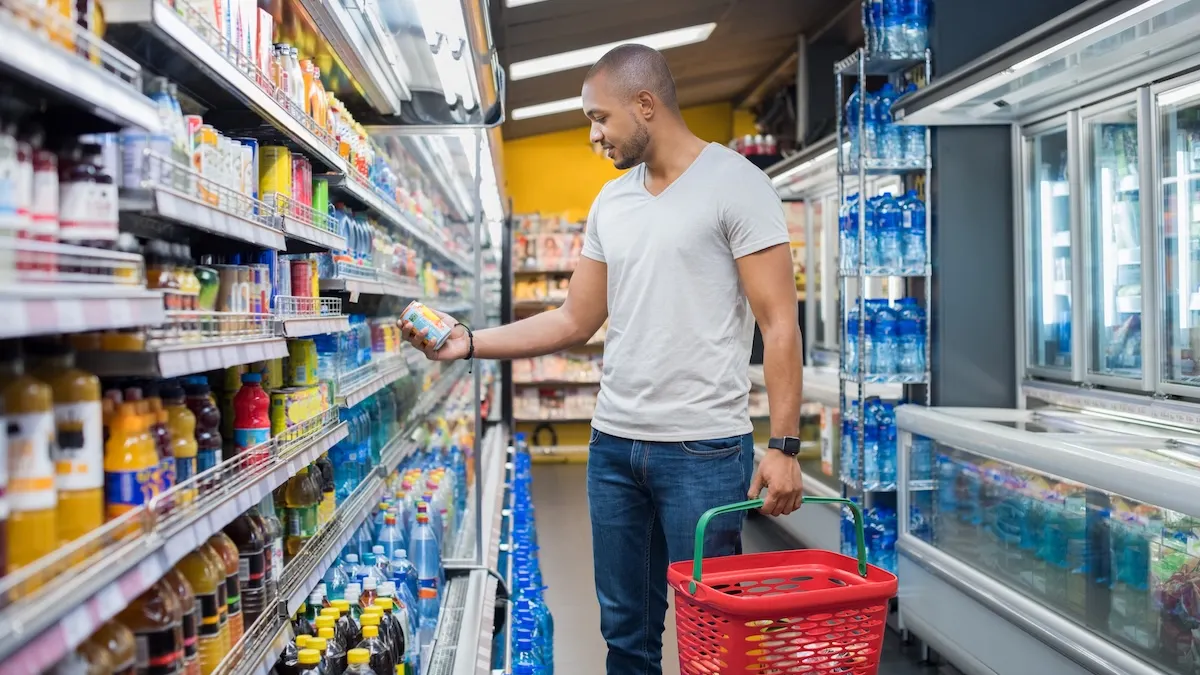Long-term growth in today’s retail industry often requires an omnichannel sales and fulfillment strategy. Customers no longer shop in one way. Rather, they move between channels and purchase wherever is most convenient.
Think of it like this: A parent discovers a food product on social media—a recommendation from one of their favorite creators. They research it further on the brand’s ecommerce site, but instead of purchasing it there, they decide to pick it up at a local retail location like Whole Foods. Why? Because they’ve got a picky eater who needs a dinner tonight, not in two days with expedited shipping.
Situations like this make it critical for today’s brands to understand their customers, know where they shop and ensure the product is available in those channels. Once they do, there are plenty of growth opportunities. And it’s not only brick and mortar, but online through a retailer’s site as well (i.e., Sephora or Target).
An omnichannel approach broadens market reach and improves customer engagement. However, expanding to B2B can create more complexities, especially with fulfillment.
The Challenges of Retail Expansion
Moving from a DTC to a retail model is exciting, but it doesn’t come without its challenges. In addition to the intricacies of managing inventory and distribution, businesses new to B2B must get accustomed to a more traditional retail setting, often with numerous locations and POS systems.
Expanding into retail not only requires a well-defined go-to-market strategy but also an operationally sound fulfillment framework. Efficient supply chain execution is essential to supporting retail distribution and maintaining service levels during the transition from DTC.
Key Strategies for Expanding into Retail with Ease
Expanding into well-known retailers while continuing to thrive in direct selling channels can help you reach more customers and do it more quickly. However, it takes the right integrations and partners to succeed without disruption. Running smooth omnichannel fulfillment operations takes keeping up with demand and compliance while fulfilling orders swiftly and cost-effectively.
A great start is finding a fulfillment partner that can meet the demands of big retailers while supporting operations with technology, expertise and flexibility.
Partnering with a Versatile 3PL Provider
It takes a balancing act to support growing ecommerce and retail channels and an experienced 3PL partner makes all the difference in facilitating seamless fulfilment operations. When searching for the right 3PL fit, look for a provider that understands the nuances of DTC, ecommerce and retail operations. In other words, a 3PL with a deep understanding of omnichannel fulfillment.
The right 3PL will work to develop trust, offer tailored solutions, optimize workflows and ensure top-notch inventory management, packaging, and shipping. Transparent communication and collaboration are also essential characteristics. Along with expertise and experience, look for a provider that leverages technology, facilitates efficient retail onboarding and compliance, and optimizes the fulfillment processes across channels.
Leveraging Real-Time Data and Technology
Technology has become table stakes in logistics for both ecommerce and retail fulfillment. From forecasting demand to keeping customers notified post-purchase, tech plays a significant role in the supply chain. 3PLs that haven’t modernized their operations lack the ability to offer real-time insights, optimize inventory management and tracking and make agile responses to fluctuating retail needs possible.
Efficient Retail Onboarding and Compliance
Every retailer has unique requirements and a retail-ready fulfillment partner enables brands to meet them. Typically, this happens using detailed onboarding plans and strategies for labeling, packaging and documentation. Brands should take note of whether a potential logistics provider is experienced in setting up EDI transfers and avoiding infractions that would result in a chargeback. The right provider is well-versed in compliance and offers seamless retail fulfillment solutions.
Optimized Omnichannel Operations
Developing fulfillment processes that support both DTC and retail needs requires specific equipment and expertise. Optimizing processes and labor for these operations should address all channels and shipment profiles, from small picks to cases and pallets, ensuring a cohesive and stellar experience, whether it’s ecommerce or retail.
The Secret to Enabling Growth
Clear communication and collaboration between logistics partners and brands are key to retail success. The more fulfillment teams become an extension of the brand’s they’re working with, the smoother retail and ecommerce operations will be. When a brand shares essential information and a 3PL provides the right data, it’s easier to stay proactive and problem solve. Brands that carefully evaluate potential providers will gain the edge that allows them to expand from DTC to retail without the growing pains.






